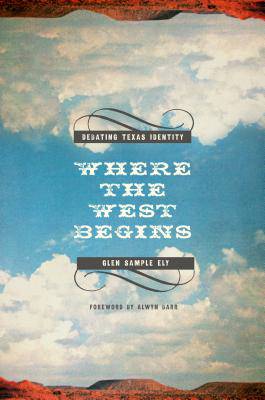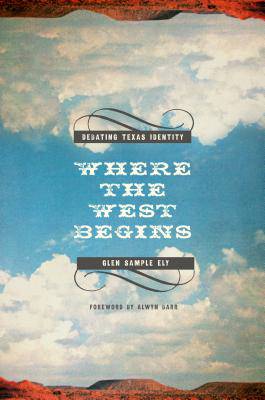
- Afhalen na 1 uur in een winkel met voorraad
- Gratis thuislevering in België vanaf € 30
- Ruim aanbod met 7 miljoen producten
- Afhalen na 1 uur in een winkel met voorraad
- Gratis thuislevering in België vanaf € 30
- Ruim aanbod met 7 miljoen producten
Zoeken
€ 34,95
+ 69 punten
Uitvoering
Omschrijving
Unsure which of its legacies are true and which to embrace, Texas grapples with an identity crisis. One camp insists that the state's roots in slavery, segregation, and cotton make it southern. Another argues that its Native and ranching history make it western. Outside Texas, southern and western historians who don't know what to make of the state ignore it altogether. In his innovative settling of the question, Glen Sample Ely examines the state's historical DNA, making sense of Lone Star identity west of the hundredth meridian and defining Texas's place in the American West. Focusing on the motives that shape how Texans appropriate their past--from cashing in on tourism to avoiding historical realities--Ely reveals the inner workings of a multiplicity of Texas identities.
Specificaties
Betrokkenen
- Auteur(s):
- Uitgeverij:
Inhoud
- Aantal bladzijden:
- 224
- Taal:
- Engels
- Reeks:
Eigenschappen
- Productcode (EAN):
- 9781682830123
- Verschijningsdatum:
- 15/06/2011
- Uitvoering:
- Paperback
- Formaat:
- Trade paperback (VS)
- Afmetingen:
- 145 mm x 224 mm
- Gewicht:
- 362 g

Alleen bij Standaard Boekhandel
+ 69 punten op je klantenkaart van Standaard Boekhandel
Beoordelingen
We publiceren alleen reviews die voldoen aan de voorwaarden voor reviews. Bekijk onze voorwaarden voor reviews.











